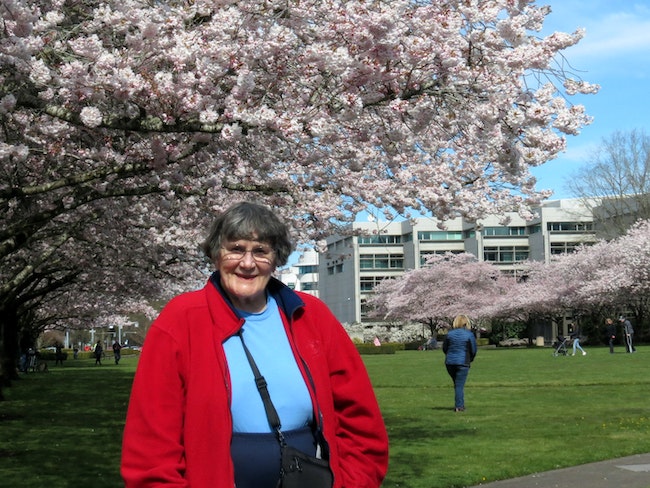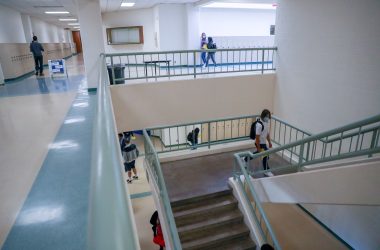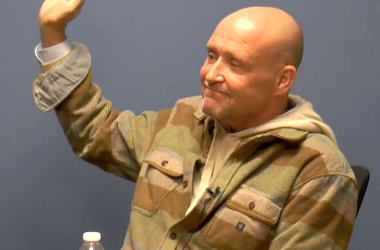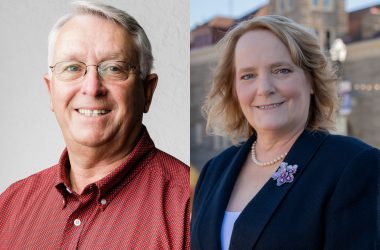
Barbara Halliday lives at Bonaventure Salem and recounted how life has changed because of COVID-19. (Courtesy/ Barbara Halliday)
NOTE: Salem Reporter is providing free access to its content related to the coronavirus as a community service. Subscriptions starting at $5 a month help support this.
Barbara Halliday has lived at Bonaventure Salem for two years, enjoying the group living lifestyle for seniors whose “homes became a burden instead of a pleasure.”
Halliday, 88, recounted to the Salem Reporter Friday how life had changed at the assisted living facility since the coronavirus pandemic.
A Willamette University graduate from “way back when,” Halliday said she’s met several alumni at Bonaventure, and they share memories about their years at the college.
She said being isolated is going to be psychologically difficult for the residents, but she believes her generation is more resilient than those that have come after.
“A lot of the people here remember World War II,” Halliday said. “They know there’s simply situations where you have to go along.”
She and her husband retired to Salem in 2008. Before that she worked as an administrative assistant in the learning resources service at the Veterans Affairs hospital in Salt Lake City.
Now, she lives alone after her husband passed away and usually has her meals in one of the facility’s two dining rooms. But as Bonaventure curtailed activities in the face of the coronavirus, Halliday said she’s been asked to stay in her apartment, period.
“I think I was one of the early birds to take heed of what the CDC was telling us, and started imposing a self-quarantine, which meant I wasn’t going anywhere in the outside community except those medical appointments,” Halliday wrote in an email.
Her son and daughter live nearby, and they plan to reactivate Skype so they can see each other.
Her meals are delivered, and Bonaventure employees take her temperature twice a day. If seniors leave the building for any reason, they’re under a 14-day quarantine when they return, she said.
“Being part of the ‘elderly’ age group, I realize that when it comes to this virus, there is a large ‘bullseye’ target on my back. But I think Bonaventure is doing all humanly possible to protect us, short of putting a moat around the building and filling it with alligators. I’m optimistic that COVID-19 won’t find those targets on our backs,” Halliday wrote.
Halliday is one of more than 30,000 Oregonians living in a nursing home, residential care facility or other licensed care center who can’t have visitors now as the state tries to curtail the spread of COVID-19 and protect those particularly vulnerable.
Cynthia Mohr, a psychology professor at Portland State University, said social interactions are important in a biological sense because they boost immune function. People who are socially isolated have a higher mortality rate, Mohr said.
She said relationships have the biggest impact on human’s emotional processing – they can bring joy or create upset through conflict.
“Having that sense of both reducing the negative but also promoting positive experience is a big part of what’s going to be important to keeping people feeling optimistic and hopeful and have that better sense of well-being,” Mohr said.
As seniors become more isolated under stringent measures are taken to ensure their safety, they are also losing sources of connection.
Mohr advised people to reach out to seniors using video chats like Facetime or Skype “because it enables a better quality or level of connection.”
“Our relationship needs are really human needs. They’re just as important as other kinds of need,” she said.
Around 15% of the population in Marion County is 65 or older. In Polk County the number is 18%, according to U.S. Census Bureau data.
The Friendship Brigade, volunteers who visit seniors at Salem’s assisted living facilities, is arranging “phone visits” and making cards to send to residents in lieu of in-person visits.
Melanie Fuller, Meals on Wheels program manager, said the city’s senior center, Center 50+, is offering pickup for meals that would’ve otherwise been served inside the senior center.
Seniors drive or walk up, hand over their meal ticket and they’re handed a meal. Fuller said about 50 people each day make use of the service.
Fuller said there has been a lot of interest recently from people wanting to lend a helping hand and sign up to deliver meals.
On Thursday and Friday, they were training 16 new drivers.
Fuller said the organization is limited to how many volunteers can attend orientation, but encourages people to be patient – volunteers need to be vetted and go through a training before they can hit the road.
“We’re going to need those extra people, we don’t want them to get discouraged,” Fuller said.
People can volunteer to deliver meals by filling out an application online.
On Monday, Marion Polk Food Share delivered 504 meals through the meals program. Fuller said that’s how many they deliver on average and she expects that number to increase as more people sign up for home delivery. People wishing to receive meals can call 503-364-2856.
Meals on Wheels has also adapted its delivery style to drop and go, because volunteers can’t stand around and visit, Fuller said.
Have a tip? Contact reporter Saphara Harrell at 503-549-6250, [email protected] or @daisysaphara.









